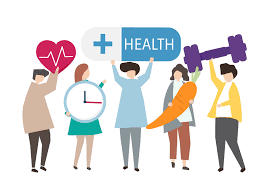Your Prescription to Better Health—Wellness, All in One
Taking charge of one’s health can be overwhelming, but it really does not have to be this way. What most people need is a clearly defined, uncomplicated plan toward better health. Actually, small steps now can amount to major benefits down the line. This post will help the reader understand how one can effectively use prescriptions and put daily health habits into action.
Many are dependent on prescription medication, whereas in reality, it is just a small part of the equation. Choices one makes in daily decisions—food and exercise-related, in particular—are critical for good health. Readers will learn tips on striking a balance in medication by making lifestyle adjustments toward a better life.
Beginning today will take a decision to head out in meaningful ways toward health. Easy steps can get anyone on the path to better living. This article will provide practical advice to help people get started and stay motivated.
Key Takeaways
Developing a health plan can help manage prescriptions effectively.
Daily habits can improve your physical and mental health.
Small changes can make a big difference in long-term health.
Understanding Prescription Medication
Medications form a huge part of health management. A brief overview of the types, mode of action, and being compliant can help individuals make an informed decision.
Types of Prescription Drugs
Prescription drugs can be further classified into various types. The common categories include:
Antibiotics: These are against bacterial infections.
Antidepressants: They manage mood disorders.
Antihypertensives: These lower high blood pressure.
Analgesics: These are basically pain relief medications.
Each class has a specific function and acts differently in the body. The right class is usually prescribed by a healthcare provider depending on the condition a patient has. Knowing the class can enable patients to identify their drugs and the expected effects.
How Medications Work in Your Body
Drugs act on the body’s systems to achieve the intended response. The activity normally begins when a patient takes a pill or an injection is given.
As the drug is absorbed into the bloodstream, it travels to different areas and binds to certain receptors. This binding action may initiate or even inhibit some functions.
For example, pain drugs bind to specific receptors in the brain, reducing feelings of pain. Others balance some of the chemicals in the brain. Knowing how medications work can help explain a patient’s treatment plan.
Need for Adherence to Medications
One has to take their medications properly to recover. Often, missing doses or stopping medication too early will lower treatment effectiveness.
Medication adherence: the administration of the proper dose at the correct time. Assist patients with adhering to their regimens by doing the following:
Using a pill organizer
Setting reminders on one’s phone
Keeping a medication log
A health provider should be contacted if there happens to be a problem. The consistent use of medications can often lead to improved health.
Build Healthy Habits—Small Steps for a Healthier You
Building healthy habits into your daily life may assist you in achieving improved health. It does not need to be large steps; small steps can deliver long-term results. Look at the following areas of your life and make minor changes to live a healthier life.
Get Some Exercise
Regular physical activity is a part of health. Exercise will assist in maintaining a fit weight and lower the risk of chronic diseases. Always aim for 150 minutes of moderate aerobic physical activity every week.
Examples of exercises are:
Walking
Jogging
Swimming
Cycling
You must also incorporate strength training. This will help you build up your muscles and give your bones additional density. Choose some things you enjoy so that you can become motivated. Even short bursts will help when it comes to such activities as brisk walking.
Eat a Well-Balanced Diet
A well-balanced diet is one of the critical components of health. Having a variety of foods ensures that the body gets all the required nutrients. Incorporate with emphasis on:
Fruits and vegetables
Whole grains
Lean protein sources
Healthy fats
Cut down on foods that are processed, sugary drinks, and sodium. Studying food labels helps to make healthier choices. Preparing meals at home can also help in eating balanced and healthy meals.
Stress Management Techniques
Stress management is key to overall wellness. High stress can lead to physical and mental health issues. Finding ways to cope can be very important.
Techniques include:
Deep breathing exercises
Meditation
Yoga
Time spent in nature
Take some time for fun. Stay in touch with friends and family. Hobbies are a great stress reliever.
Get Enough Sleep
Sleep is important to your health. Sleep helps your body to repair itself and to fight disease. Adults need 7 to 9 hours of sleep each night.
To get a better night sleep:
Have a bedtime routine.
Keep a regular sleep schedule, limit the screen time before bed, and keep your bedroom dark and comfortable. These simple changes can add up to give you better rest, hence an overall healthy well-being. Getting enough sleep will help you stay in a good mood and more focused through the day.
